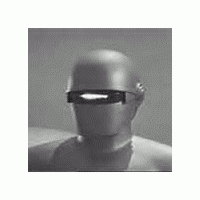メッセージ: 20
言語: English
Français (プロフィールを表示) 2009年1月21日 1:06:21
For some reason when I say things plural in Esperanto, it seems to slow my speech. Especially if it is something with multiple plurals in a row, like three things in a sentence.
Does this happen to most, or is it just me? I don't have this problem with Ido and their plural, but maybe that is because Ido is easier for me at the moment due to studies, then Esperanto.
RiotNrrd (プロフィールを表示) 2009年1月21日 2:22:30
ceigered (プロフィールを表示) 2009年1月21日 5:18:42
And plus, when you speak in Esperanto you are trying to be understood as a learner by learners, whereas when you speak English or Japanese or German you're trying to be understood as a speaker by native speakers.
Rogir (プロフィールを表示) 2009年1月21日 13:36:15
ceigered (プロフィールを表示) 2009年1月21日 15:05:26
Rogir:I think you can pronounce words with final -j almost as fast as without them, I think you're slowing down because you're not used to it yet, whereas Ido, I've heard, uses an -s ending like English and French.Ido (well, the main one at least) uses 'i', for instance viro -> viri. And because of that their infinitive is something involving '-ar' or something like that. Present, Past and future are the same, and imperative is -ez. So no out of place -s as far as I know.
Français (プロフィールを表示) 2009年1月21日 19:08:38
Rogir:I think you can pronounce words with final -j almost as fast as without them, I think you're slowing down because you're not used to it yet, whereas Ido, I've heard, uses an -s ending like English and French.No, Ido changes the ending "o" to an "i" to denote plural.. Like Italian masculine words I think.
Eng - Dog -- Dogs
Esp - Hundo -- Hondoj
Ido - Hundo -- Hundi
So, you change the "o" to an "i", which personally I really like because it sounds really nice. Whereas the "oy" and "eye" sound of Esperanto are not all that pleasing to me... But I haven't heard a lot of Esperanto.. If anyone has any good links to places where I can hear Esperanto being spoken, I would appreciate!
Français (プロフィールを表示) 2009年1月21日 19:11:26
ceigered:I'm inclined to believe Esperanto is naturally a slower tongue than others.Yes, I think Esperanto is pretty slow tongue too. I think it's because a lot of the word structures have like complex consonants. Like when I like at a big body of Esperanto, it is very hard for me to just skim through it. It looks like a bunch of clogged letters. Funny though, because when I read it, it is very phonetical and easy!
And plus, when you speak in Esperanto you are trying to be understood as a learner by learners, whereas when you speak English or Japanese or German you're trying to be understood as a speaker by native speakers.

melanija (プロフィールを表示) 2009年1月21日 19:23:25
http://www.polskieradio.pl/eo/
And it doesn't sound slow at all when they speak it!

Français (プロフィールを表示) 2009年1月22日 0:08:44
melanija:Here's one place you can hear Esperanto being spoken:Dankon!!!!!!
http://www.polskieradio.pl/eo/
And it doesn't sound slow at all when they speak it!

Thanks so much for the link, I look very forward to checking it out!!

orthohawk (プロフィールを表示) 2009年1月22日 0:15:11
Français:Another good 'cast is Radio Verda with our very own Arono Chapman. Very crisp enunciation.melanija:Here's one place you can hear Esperanto being spoken:Dankon!!!!!!
http://www.polskieradio.pl/eo/
And it doesn't sound slow at all when they speak it!
Thanks so much for the link, I look very forward to checking it out!!





